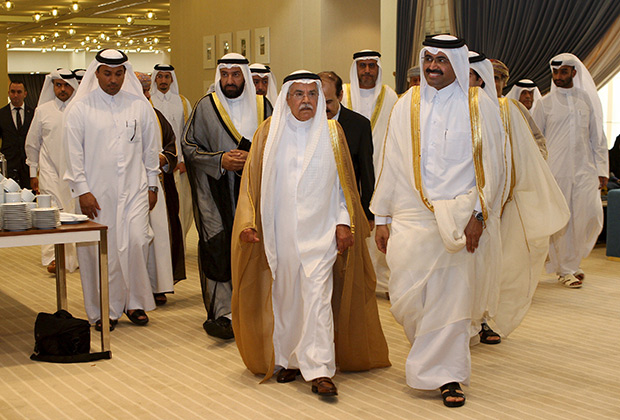-
Tips for becoming a good boxer - November 6, 2020
-
7 expert tips for making your hens night a memorable one - November 6, 2020
-
5 reasons to host your Christmas party on a cruise boat - November 6, 2020
-
What to do when you’re charged with a crime - November 6, 2020
-
Should you get one or multiple dogs? Here’s all you need to know - November 3, 2020
-
A Guide: How to Build Your Very Own Magic Mirror - February 14, 2019
-
Our Top Inspirational Baseball Stars - November 24, 2018
-
Five Tech Tools That Will Help You Turn Your Blog into a Business - November 24, 2018
-
How to Indulge on Vacation without Expanding Your Waist - November 9, 2018
-
5 Strategies for Businesses to Appeal to Today’s Increasingly Mobile-Crazed Customers - November 9, 2018
Saudi Arabia removes longtime oil minister
Ali al-Naimi was the most powerful man in the oil business for two decades – until this weekend.
Advertisement
He’s a close ally of Deputy Crown Prince Mohammed bin Salman, who has taken a hands-off approach in letting oil markets determine crude prices, rather than seeking to target a level.
According to a royal decree issued on Saturday, Ali al-Naimi, who has led the Ministry of Petroleum and Mineral Resources since 1995, was replaced by Khalid A.al-Falih, who prior to the reshuffle was the kingdom’s health minister.
This changes, reports say, comes in line with Saudi Arabia’s “Vision 2030” economic and social reform plan.
Saudi Arabia’s dominant market share and historical ability to influence prices by loosening or tightening its taps gave al-Naimi exceptional influence at meetings of the oil cartel OPEC, where the kingdom is by far the largest producer and de facto policy-maker.
Three months later, Prince Mohammed had a chance to showcase his might when he effectively ordered the Saudi delegation led by Naimi not to agree to a global production freeze deal with OPEC and non-OPEC Russia.
“That doesn’t really point to somebody who would invest a lot of time and energy in trying to reconcile different OPEC members”, said Richard Mallinson from Energy Aspects.
The departure of Al-Naimi isn’t a surprise after the fiasco in Doha. The kingdom’s energy industry, as well as its central bank, will play a “critical role in the economic transformation” plans, said Simon Kitchen, head of macro-strategy at Cairo-based investment bank EFG-Hermes.
John Sfakianakis, director of economic research at the Gulf Research Center in Riyadh, said he was reassured by the appointment of Khalid al-Falih as Saudi Arabia’s new oil chief.
Al-Falih has been working closely with the Prince Mohammed and seems to have the “confidence and trust of him”, said Bordoff, who served as White House energy adviser to President Barack Obama from 2009 to 2013.
Despite tumbling prices, Saudi Arabia, the world’s largest oil exporter, has been maintaining crude output levels at a high level to defend its market share against U.S. shale producers and other competitors.
He was responsible for Saudi Arabia’s policy of continuing to maintain oil production at the same rate despite low oil prices. They might even rise at first, out of uncertainty about Saudi Arabia’s new policies and how other oil producers will react to them. “It depends how aggressive the Saudis are in pursuing high production for extended periods and how willing they are to accept lower prices for longer”.
GFH Financial rose 1.4 percent; it has been gaining since late last week, when it said it had signed a preliminary letter of intent with Abu Dhabi’s Eshraq Properties, under which GFH might sell real estate assets to Eshraq in exchange for Eshraq shares.
Advertisement
Born in 1960, Falih joined Aramco in 1979, and went to study engineering at Texas A&M University in 1982 on an Aramco sponsorship program.





























